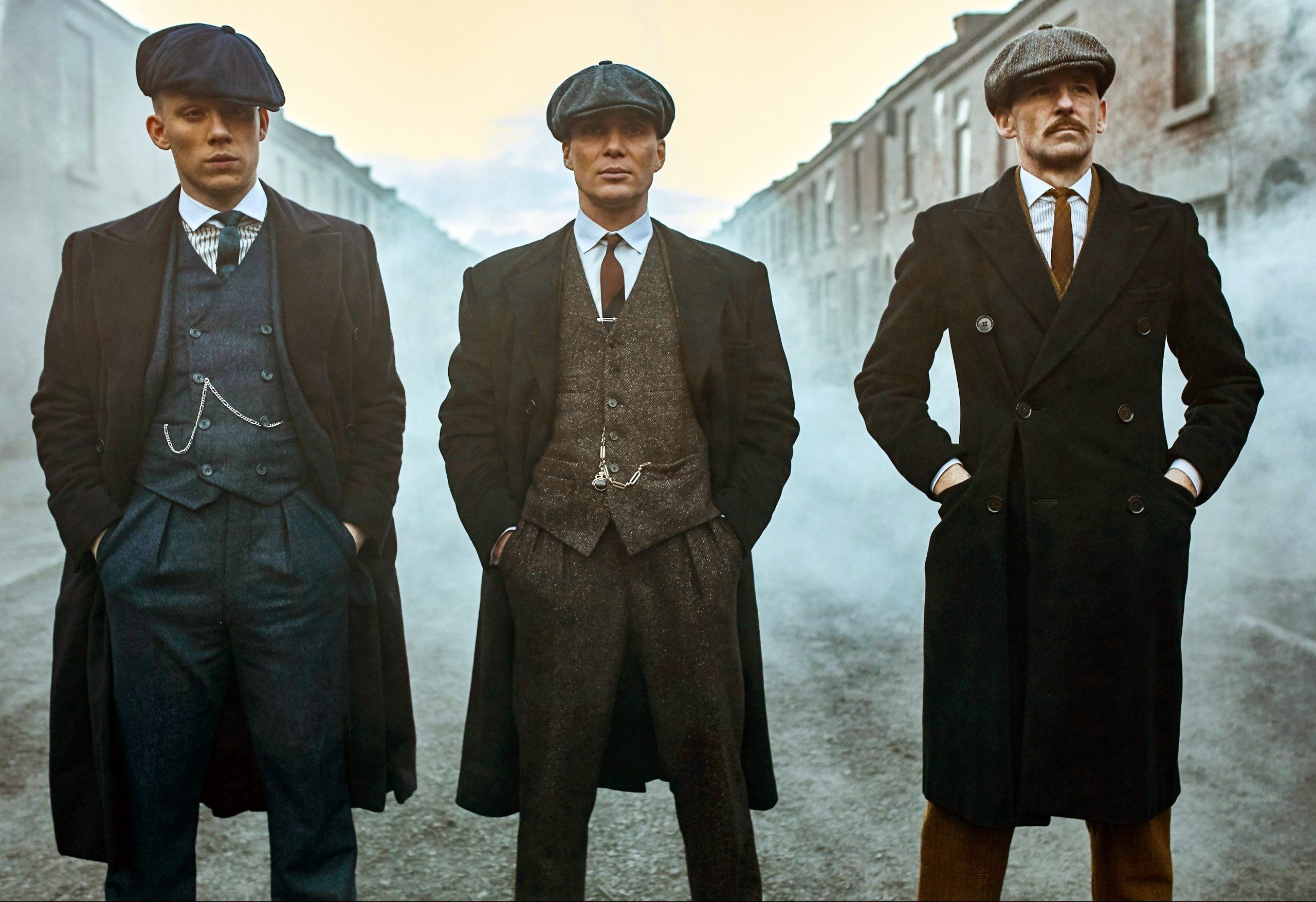 Chalk another one up to my brother. It’s a rare event that he’s the one to recommend a period piece to me, but when he does, I make sure to watch. I’d heard about Peaky Blinders for a while, but had just never got around to it. That changed this summer, and now that the most recent (fifth) season has aired on Netflix, what better time is there to review this riveting, historically-saturated series?
Chalk another one up to my brother. It’s a rare event that he’s the one to recommend a period piece to me, but when he does, I make sure to watch. I’d heard about Peaky Blinders for a while, but had just never got around to it. That changed this summer, and now that the most recent (fifth) season has aired on Netflix, what better time is there to review this riveting, historically-saturated series?
Peaky Blinders focuses on the rise to power of the Shelby family, a clan of Roma gangsters in 1920s Birmingham. From a small-time back alley gang to the masters of all betting, and more, throughout the north of Britain, the Shelbies are led in their meteoric rise by Thomas, played by the indomitable, transfixing Cilian Murphy. Tom, along with his older brother Arthur, is a veteran of the Great War, and mixed in with the mandatory maneuvering, plotting, and backstabbing (both metaphorical and literal) is interwoven an excellent portrayal of the struggles of these men to fit back into society and deal with their memories of the War to End All Wars. Soon enough, other historical threads begin to appear. Such opponents as the IRA, Ulster Volunteers, White and Red Russian forces, New York Mafia, and nascent British fascists all make life difficult for the Shelbies throughout several seasons, turning the show into a bloody, gritty version of Forest Gump for the 20s and 30s in Britain. Its material culture is phenomenal, as is its cinematography as it captures the streets and canals of Birmingham just beginning to descend from the apex of its industrial might.
If I were to offer any criticism of this wonderful show, it would be that, while nuanced to a certain extent, Peaky Bilnders still falls into tired tropes of First World War memory. Though it shows that different men reacted to their experience with different coping mechanisms (Thomas experiences chronic depression and bouts of mania; Arthur can become unpredictably, savagely, violent) and few became comatose, that experience is interpreted as singularly horrid, and is still defined entirely by the mud and trenches of the Western Front. I would have loved to see a cousin or acquaintance have served with Allenby in Palestine, or perhaps a guard unit in sub-Saharan Africa.
This is, though, a relatively minor critique of a show I have come to deeply enjoy in the past few months. I apologize for my review being somewhat brief; in the interest of preserving the experience of future viewers, I’ve left out any details that might spoil the innumerable twists and turns they have in store. In short, if you are a student of the First World War, the Interwar Years, British history, Irish history… You know what, if you’re a fan of just historical media in general, you need to be watching this show.
